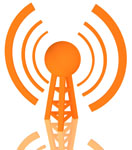
If you live in Boston, Baltimore, Albany, Syracuse, or Buffalo, you won't be getting FiOS from Verizon. Absent any public investment, you will likely be stuck with DSL and cable... like 80% of the rest of us.
Not long after Verizon announced it would cease expanding FiOS, we learned that Verizon was coming to an arrangement with the cable companies that would essentially divide the broadband market. Verizon won't challenge cable companies with FiOS and the cable companies won't challenge Verizon's "Rule the Air" wireless domain.
For a while now, the FCC has reviewed a potential deal for a Verizon purchase of Comcast's wireless spectrum. The possible deal involves multi-layered questions of anti-competitive behavior, collusion, and corporate responsibility.
Along with many other interested parties, such as the Communications Workers of America, Free Press, Public Knowledge, and the five towns are publicly opposing the deal. They have expressed their derision to the FCC but whether or not they will influence the result remains to be seen.
From a FierceTelecom article by Sean Buckley:
Curt Anderson, chair of the Baltimore City Delegation to the Maryland House of Delegates, expressed...outrage on the agreement the telco made.
"Under this transaction, Baltimore will never get a fiber-optic network, and the city will be at a disadvantage," he said. "The direct job loss will be the hundreds of technicians that would be employed building, installing and maintaining FiOS in the area. The indirect costs of this deal are even higher: the lack of competition in telecommunications will raise prices and reduce service quality.
And:
The deal, said Albany Common Council President Carolyn McLaughlin, "is not in the best interest of those who need to get and stay connected the most and is "a step backwards in bridging the digital divide."
Though these five cities would indeed be better off with FiOS than under the status quo, they would be much better off if they considered building a fiber-optic network owned by the community. Think of it like FiOS, with faster speeds, lower prices, better customer service, and an actual responsibility to put local needs first.
Regardless, the federal government needs to take action against anti-competitive collusion that drives prices up and investment down.





